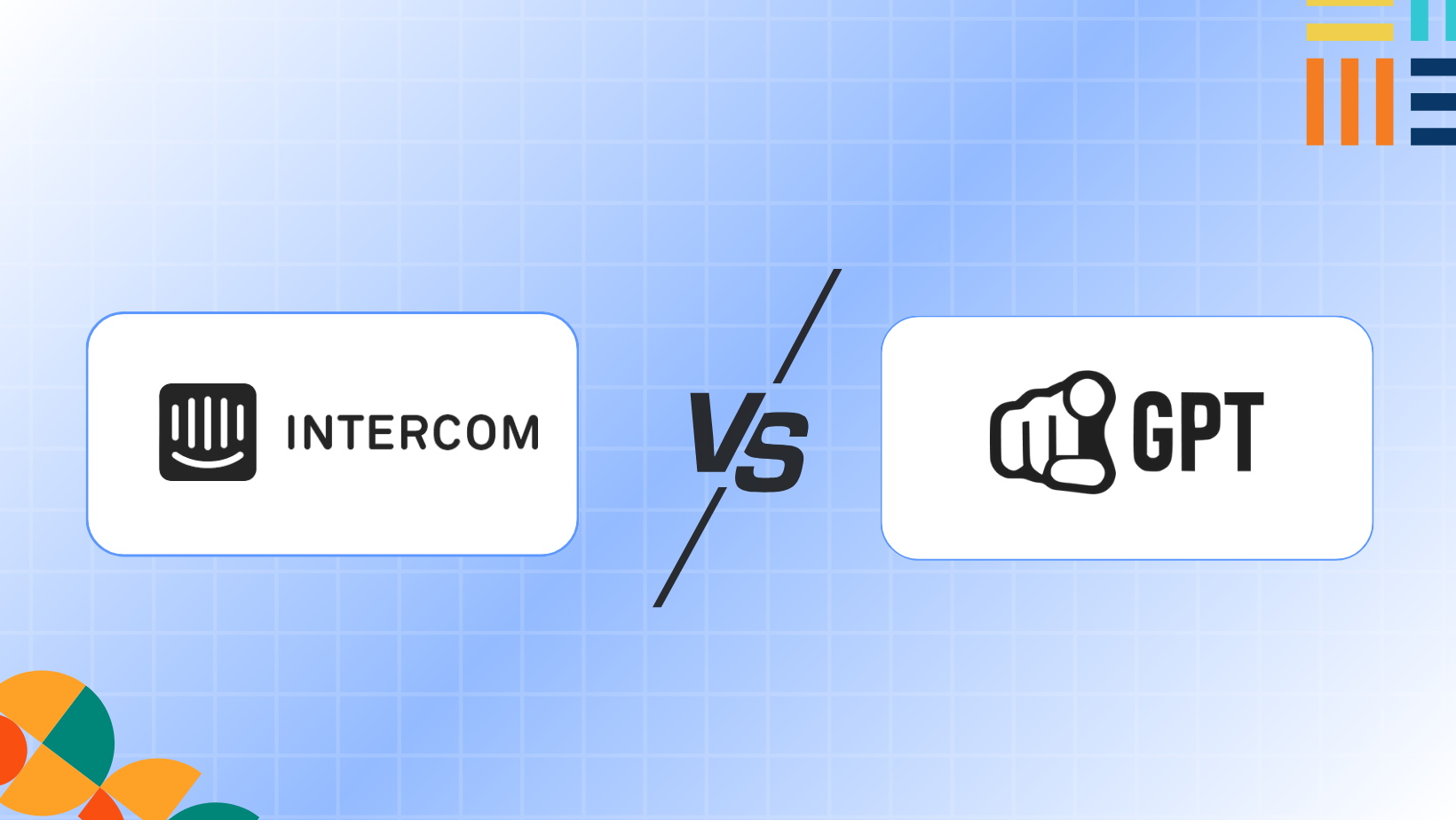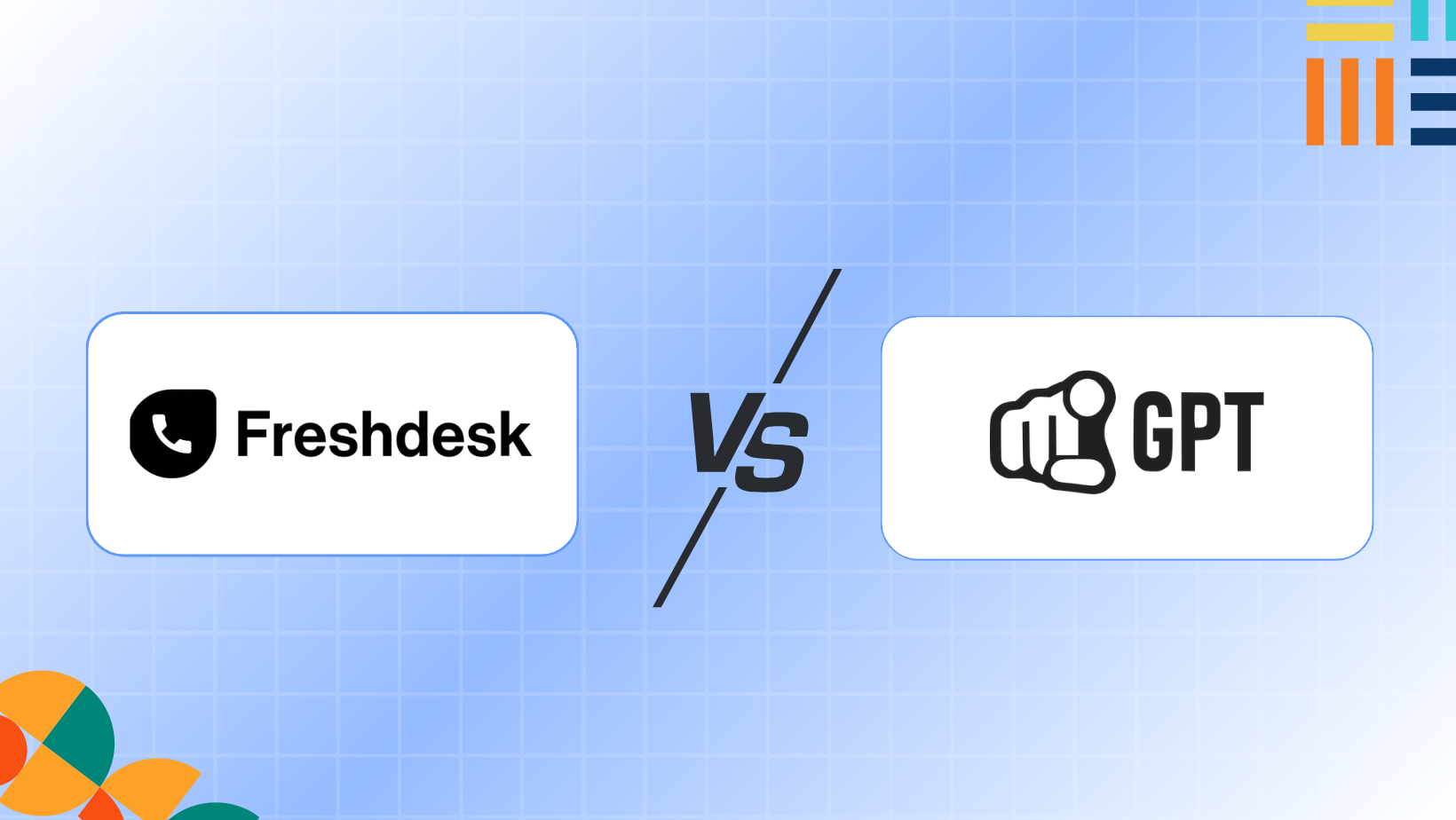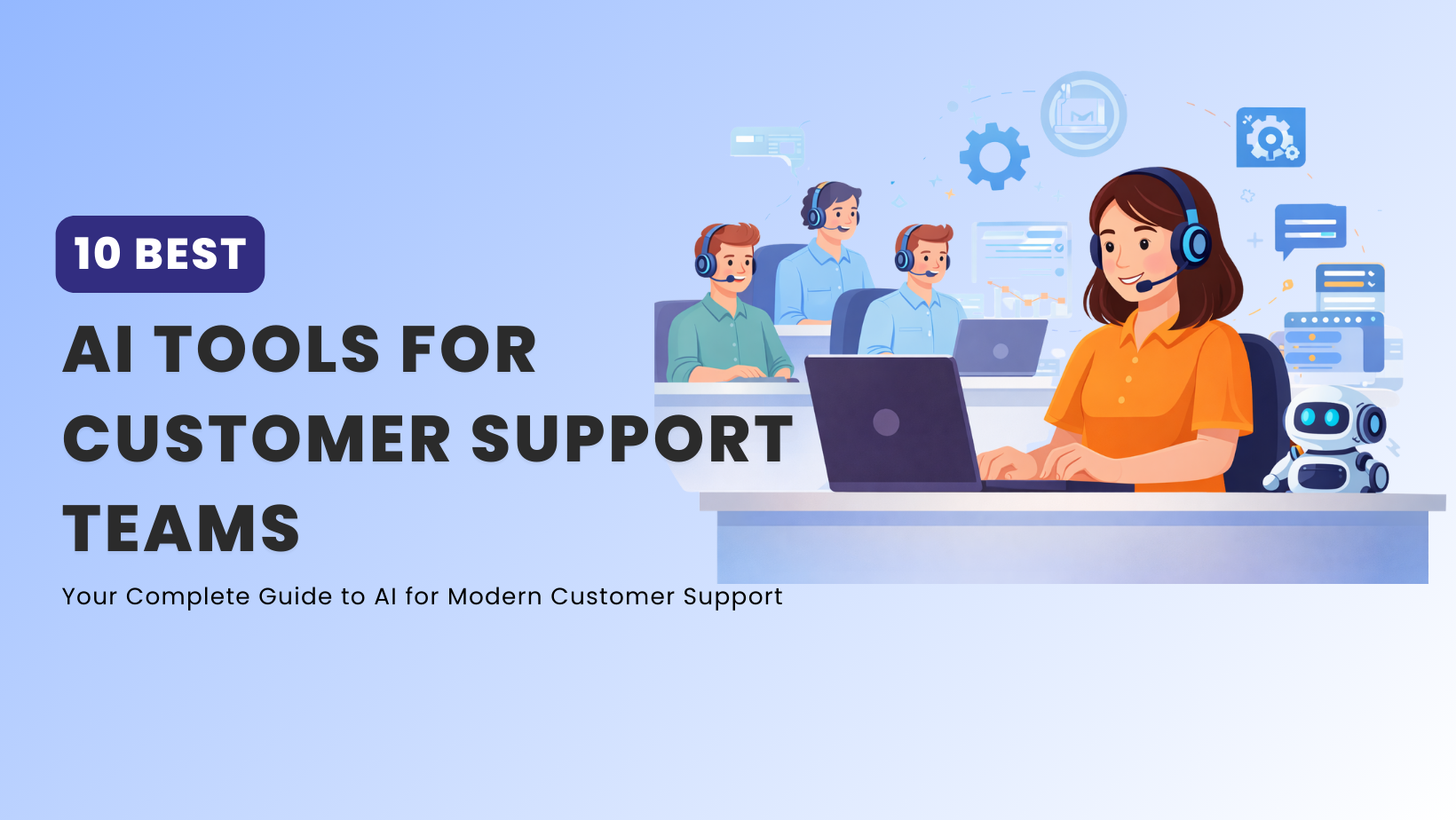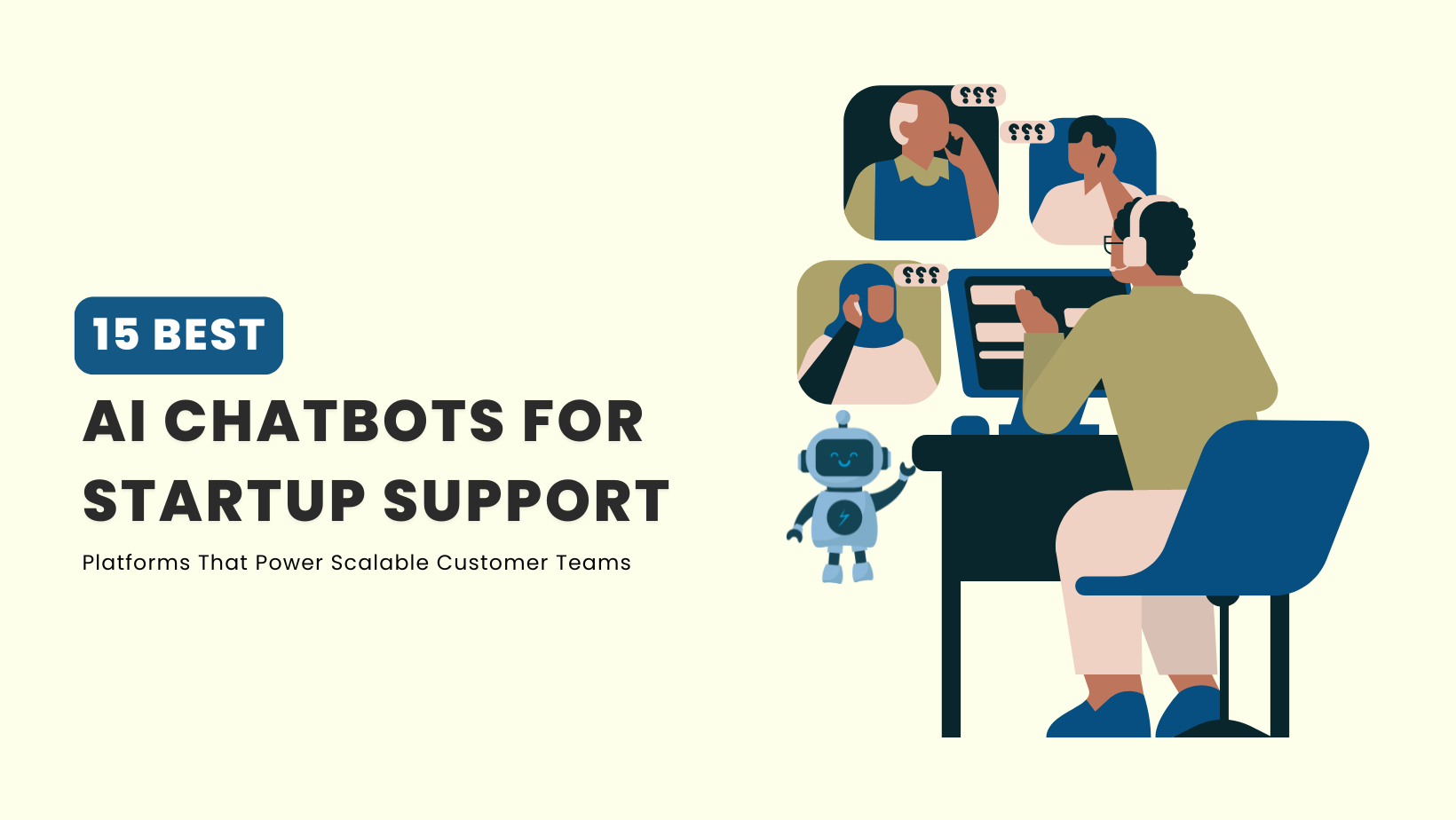YourGPT vs. Intercom: Which Is Best for Your Business in 2026?


YourGPT vs Intercom remains a leading comparison in 2026 for businesses looking for reliable customer support solutions.
The decision matters because customer expectations today leave no room for delays or inconsistent service. Speed, availability, and reliability are now the factors that decide whether a customer stays or leaves.
A delayed response, a chatbot that cannot solve the query, or a poor handoff between channels all lead to the same result: lost trust and lost revenue. Businesses are now moving beyond being present on multiple channels to finding a platform that can deliver consistent support at scale.
Both YourGPT and Intercom are strong platforms, but they serve businesses in different ways. One is built AI-first with human in the loop and flexibility in mind, while the other is a choice for messaging and onboarding.
The real question is not which tool is “better” overall, but which one fits your business model, growth stage, and long-term goals.
In this YourGPT vs Intercom comparison, we will cover the differences in features, integrations, scalability, and long-term ROI value. By the end, you will have a clear, fact-based view of which option is right for your business today and ready for the future.
YourGPT is an AI-first, no-code platform that helps businesses create and manage custom AI agents for customer support. It combines messaging, automation, and workflow tools with full control over data, integrations, and security, making it adaptable across different industries.
The platform includes AI agent builder, live chat, helpdesk tools, Self learning AI and multilingual support, allowing businesses to provide real-time assistance, and engagement at scale. YourGPT is adopted by SaaS providers, e-commerce companies, and enterprises seeking to improve customer interactions with AI-driven efficiency.
Intercom is a customer communication platform that combines chat, messaging, and automation tools to help businesses interact with customers. It was founded in 2011 and has become one of the most widely adopted solutions.
The platform offers live chat, chatbots, and helpdesk tools that allow businesses to provide real-time support, onboarding, and engagement. Intercom is used by startups, SaaS companies, and enterprises that want to improve customer conversations at scale.
While both platforms improve customer communication, YourGPT stands out as an AI-first solution with stronger training options, self-learning capabilities, and broader customisation. Along with this, it supports multiple channel coverage, giving businesses more flexibility in how they connect with customers. The comparison below shows where YourGPT moves ahead of Intercom.
| Feature | YourGPT | Intercom |
|---|---|---|
| AI & Automation | Supports multiple AI models, no-code AI Builder, AI Studio for multi-step workflows, plus real-time Voice AI for phone interactions. | Fin AI bot designed mainly for FAQ responses and basic workflows. |
| Data Training | Learns from PDFs, Notion docs, Google Sheets, websites, and sitemaps for highly personalised AI capabilities. | Primarily trained using help center articles with limited flexibility. |
| Omnichannel Support | Unified inbox for Web chat, WhatsApp, Messenger, Telegram, LINE, and voice — all managed in one place. | Web chat, in-app messaging, and email only. No native voice or broader messaging app coverage. |
| Human Handoff | Escalates to live chat, routes to Slack, email, or dashboard with full conversation history. | Escalates to live chat or help desk, but lacks native Slack integration. |
| Integrations | Wide range of direct integrations and API support for advanced workflows. | Fewer integration channels and less flexibility. |
| Customisation | Brandable AI agents with full control over appearance, adjustable tone, workflow logic. | Limited branding options. |
| Analytics & Insights | AI-powered dashboard with sentiment analysis, CSAT, top intents, and performance trends. | Basic analytics for usage and interactions. |
| Workflow Automation | AI Studio builds complex workflows combining AI and human actions. | Automation mainly for conversation routing and campaigns. |
| Voice AI | Native AI-powered inbound and outbound calling included. | No integrated AI voice calling. |
| Security | Enterprise-grade security with SOC 2, GDPR compliance, and granular permissions. | Enterprise-grade security with SOC 2, GDPR compliance, and granular permissions. |
When comparing YourGPT and Intercom, ROI depends on how costs scale with team size and how much automation reduces human workload. To illustrate, let’s take a 10-user team as an example.
YourGPT’s pricing is not tied to seats, which means the cost stays fixed regardless of team size. Instead of paying per user, a transparent plans based on AI credits. These credits cover conversations, workflows, and automation, so the focus shifts from headcount to actual usage.
Intercom follows a pay-per-seat model plus per-resolution AI costs. For 10 users on the Advanced plan ($85 per seat/month), the base cost is $850/month billed annually. Adding AI resolutions via Fin ($0.99 each) and messaging add-ons can easily push monthly spend above $1,500.
With YourGPT, costs are linked to AI credit usage rather than team size, which means businesses get higher value as they scale. Intercom, on the other hand, ties pricing to seats and AI resolutions, making ROI harder to maintain as usage increases. Overall, YourGPT delivers stronger ROI along with broader functionalities, giving growing teams more value for their investment.
YourGPT gives businesses complete control over customer engagement, covering everything from AI-powered website support and voice agents to multi-channel messaging and custom workflows. It goes beyond answering questions and can also take actions such as guiding customers to the right page, booking appointments, or updating records while being trained on your own knowledge sources.
As a bootstrapped and fast-moving team, YourGPT works closely with its customers and iterates quickly based on real user feedback. This not only makes the platform more adaptable but also ensures higher ROI, since businesses get maximum value without paying per seat or per resolution.
Teams can automate complex processes without coding and deliver instant, personalised support across every major channel.
Intercom is well known for web and in-app messaging, but its AI and customisation remain limited. It supports fewer channels, offers less flexibility in workflow design, and its ROI is harder to sustain because costs increase with every new seat and AI resolution.
For companies looking for one platform to manage support, sales, and operations with advanced AI features, higher ROI, maximum control, and minimal effort, YourGPT is the stronger choice.
When comparing YourGPT with Intercom, the choice depends on whether your business values AI-driven scale and flexibility or a familiar, polished interface. Both platforms are strong, but they serve different priorities.
If you found this comparison useful, you may also want to read these related guides:
YourGPT is stronger for multi-channel support. It handles web chat, email, WhatsApp, Messenger, Telegram, LINE, and AI-powered voice calls from one unified inbox. Intercom focuses on web chat, in-app messages, and email, with fewer native integrations for broader channels.
Yes. YourGPT can qualify leads, capture customer data, and push it to your CRM while also handling customer support. This allows teams to manage the full customer lifecycle — from pre-sale conversations to after-sale support — in a single platform.
No. Intercom does not provide native voice calling. Businesses need third-party integrations to add phone or voice support. YourGPT includes AI-powered inbound and outbound voice as part of its platform.
YourGPT learns from a wide range of data sources such as PDFs, Google Sheets, Notion, websites, and sitemaps. This gives it flexibility to answer context-specific questions. Intercom mainly uses help center articles, which limits adaptability for complex use cases.
YourGPT pricing is based on AI credits rather than per seat, which keeps costs predictable as teams grow. This makes ROI higher for scaling businesses. Intercom uses a per-seat model with extra charges for AI resolutions and add-ons, which can make ROI harder to sustain as usage increases.
Yes. YourGPT integrates with Shopify, WooCommerce, and other eCommerce platforms. It can recommend products, track orders, and provide real-time customer support across multiple channels.
Intercom works well as a help desk if your business mainly uses web chat, in-app messages, and email. However, if you need advanced workflows, voice, or broader channel coverage, you may need to add other tools alongside it.
YourGPT can be set up in a few hours. It offers a no-code builder, ready-to-use templates, and AI training options that make onboarding faster for both small and large teams.
Intercom is well known for SaaS onboarding through in-app messaging, product tours, and campaigns. YourGPT can also support onboarding but is stronger when businesses want to combine in-app messaging with WhatsApp, email, or voice follow-ups.
Yes. YourGPT includes analytics dashboards showing customer satisfaction, fallback rates, top intents, and overall AI performance trends. This helps teams improve support quality and ROI over time.
The return on investment from customer support platforms is best understood through real-world results. Across industries, both Intercom and YourGPT have helped companies streamline communication, improve customer experiences, and scale support in ways that match their priorities.
YourGPT is increasingly chosen by businesses aiming to expand automation and unify customer engagement across multiple channels:
Intercom has been widely adopted by SaaS and fintech companies:
These case studies show that while the two platforms take different approaches to customer support, both deliver meaningful results for their customers.
Choosing between YourGPT and Intercom starts with understanding where your customers connect with you, how you want to manage those conversations, and the role AI should play in your customer experience. The decision depends on your primary channels, the flexibility you need in automation, and how well each platform can scale with your growth.
YourGPT is ideal for businesses that need a single platform to handle multiple channels, from live chat and email to WhatsApp, Messenger, Telegram, LINE, and AI-powered voice calls, while drawing knowledge from diverse sources such as PDFs, Notion docs, Google Sheets, websites, and sitemaps.
Its flexibility allows teams to unify support, sales, and operational automation in one place, reduce reliance on multiple tools, and control costs with transparent, predictable pricing.
Intercom works well for companies whose focus is web-first engagement. Its strengths are in-app messaging, onboarding, and targeted campaigns, making it a natural choice for SaaS businesses and marketplaces. However, its pay-per-seat model and per-resolution AI charges can make ROI harder to sustain as teams or volumes increase.
The right choice depends on your vision for the future. If your goal is to meet customers wherever they are, automate more complex workflows, and maximise AI value, YourGPT offers the flexibility and delivers the ROI to support long-term growth with confidence.
YourGPT helps you respond instantly, free up your team, and keep customers happy across every channel.
No credit card needed · 7 days full access · Cancel anytime

TL;DR: The Core Difference YourGPT Built around AI agents that handle conversations, run workflows, and resolve issues on their own across channels. The goal is to reduce incoming support volume by solving problems before they reach a human. Freshdesk Built around structured ticketing. It focuses on organizing queues, managing SLAs, and tracking agent performance. Humans […]


TLDR Zendesk works well for ticket-based support, but it can feel limiting as teams rely more on automation and multi-channel conversations. This guide compares 7 practical Zendesk alternatives that reduce manual handling and let AI manage common requests across chat and messaging tools Zendesk is one of the popular customer support platform has been around […]


WooCommerce gives store owners flexibility, but that flexibility comes with trade-offs as a store grows. Over time, pages slow down as plugins accumulate, carts get abandoned without obvious reasons, and customer questions start consuming more time than expected. These issues rarely appear all at once, but they compound quickly and directly affect revenue. After working […]


AI customer support tools now form a core part of how many teams handle growing contact volumes and rising customer expectations. At the same time, the market has become crowded, with many similar-looking products and overlapping claims, which makes evaluation harder for support leaders. The AI customer service segment grew from about $12 billion in […]


If you run an Instagram account for business in 2026, you already feel the pressure. The platform has 2 billion monthly users now. About 44% of people on Instagram shop every week, and most expect you to reply to their messages in under an hour. Between creating posts, Stories, and Reels, answering DMs, responding to […]


TL;DR Growing startups struggle with rising support volume and limited teams. AI chatbots automate repetitive queries, keep responses consistent, and scale support without extra headcount. Based on 48+ hours of our testing, we evaluated platforms across setup time, accuracy, AI capability, pricing transparency, and real-world performance for startups. AI chatbots help startups manage customer support […]
